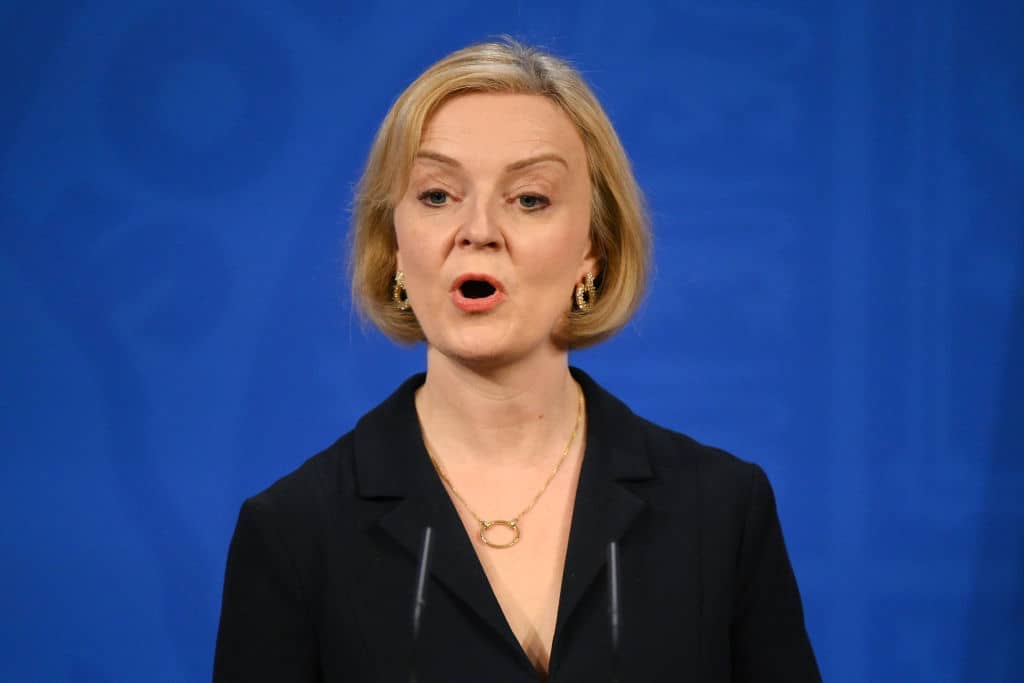After two major U-turns over last month’s mini-Budget and the sacking of a chancellor, what’s left of Liz Truss’s economic agenda? Parts of it remain intact. But it’s now shaping up to be significantly different from what the Prime Minister intended when she entered Downing Street.
The key assumption behind Trussonomics as it was developed during the leadership race was that the markets would be delighted to lend to the government, on the cheap, to see through its tax-cutting, growth-stimulating agenda. That assumption was quickly killed off after former chancellor Kwasi Kwarteng sat down from presenting his mini-Budget, and the cost paid by governments to borrow began to soar. It landed Truss in a huge economic mess: making her the international focal point for less amenable lending markets worldwide. But in an attempt to pick up the pieces, even more pillars of her economic agenda are collapsing.
U-turning on plans to abolish the 45p tax rate two weeks ago seemed to mark the end of Truss’s revolutionary-like attitude towards economic change. But reversing on her plans to keep corporation tax for large companies at 19 per cent means she has lost the two major tax-cutting measures in the mini-Budget that carried with them the counterintuitive but essential argument for growth: that higher tax rates are not always optimal for bringing in revenue.
The PM’s radical, agenda-setting mini-Budget now looks like it could be anyone’s mini-Budget
Truss and her government never really bothered to explain this rationale to the public, but one of the better reasons for lower headline tax rates – both for individuals and businesses – is that this can sometimes boost revenue. The 2010s was a lesson in all this: the drop of the 50p tax rate to 45p saw the country’s highest earners pay more tax collectively than they did before; meanwhile, as former chancellor George Osborne cut the rate of corporation tax year-on-year, revenue also rose.
So Truss is left with an economic plan that has been watered down to a tax cut that was already announced by the previous government (to cut the basic rate of tax from 20p to 19p) and a pledge to spend more unfunded money on the NHS (i.e. ditching the National Insurance levy). Her radical, agenda-setting mini-Budget now looks like it could be anyone’s mini-Budget. A rather mundane tax cut and cash for healthcare: put Theresa May’s name on the dotted line and no one would think to look twice.
Then there’s the economic principles she’d had to cede in order to save just the bare bones of the mini-Budget. As I write in the Daily Telegraph today, Truss went from lambasting Boris Johnson’s windfall tax just two months ago to highlighting her government’s decision to keep it as proof of fiscal responsibility. She has now ushered in her own windfall tax on renewable power companies, in a bid to appease furious MPs, further enabling economic attacks on profit and business success which the prime minister is known to personally dislike.
This was likely to be her only shot at major reform. Having brutally fired Kwarteng this afternoon, handing the Treasury keys to Jeremy Hunt, the economy is now in the hands of the former health and foreign secretary, no longer in the remit of Truss. This evening, Steve Brine MP, who backed Hunt for leader, told the BBC: ‘You should see Liz Truss as chairman and Jeremy as chief executive.’ This is the price Truss is thought to have paid for keeping her position in the Downing Street stable. It’s a high price indeed: while Hunt’s own leadership bid(s) would suggest he is sympathetic to Truss’s ‘desire for a high growth, low tax economy,’ as she said at today’s press conference, the Prime Minister has given the economic reins to someone who has never sat in circle of free-market MPs – and has never shown much interest in doing so.
It was a move designed to calm MPs, as Katy Balls reports here. But what about the markets? Based on this afternoon’s movements, reinstating the corporation tax hike and announcing a new chancellor has not, yet, done much to regain her government’s credibility with the markets. Indeed, the pound dropped with the news of Kwarteng’s departure, starting the day at $1.13 and taking a dive down to just under $1.12 after Truss’s press conference.
And gilt yields were on the rise again: with ten-year yields rising up to 4.3 per cent, starting from 4.1 per cent at the start of the day. Five-year yields are on the rise, too:
Markets don’t like uncertainty – and sacking Kwarteng (who was insisting to the media just last night that he wasn’t going anywhere) will have certainly contributed to jitters. Next week, we’ll see what Hunt can do ahead of the medium-term fiscal plan to further calm their nerves.
We’ll see what Truss’s next move is, too. But it can be said with certainty that it won’t be anything close to what her economic agenda originally spelled out.







Comments